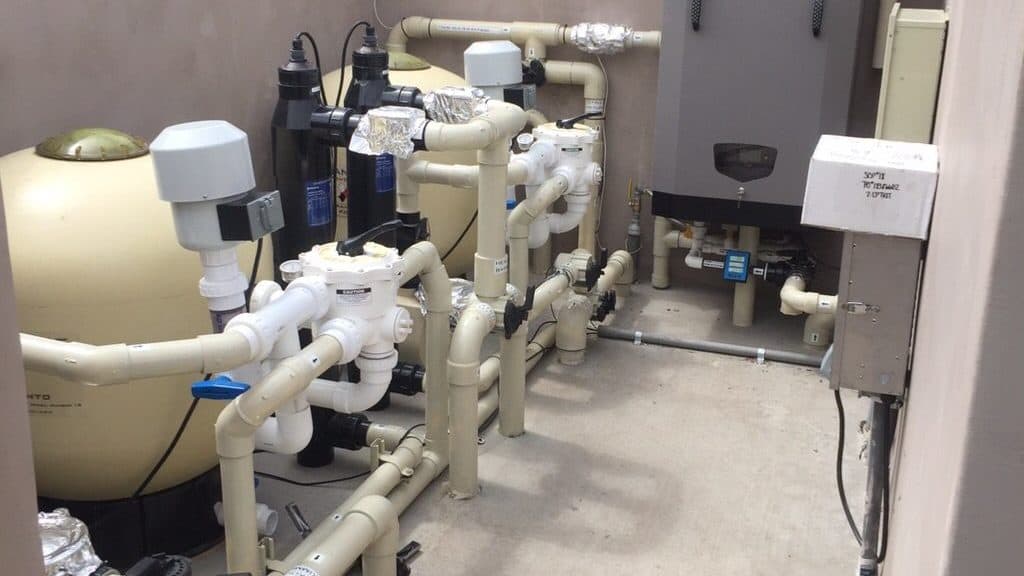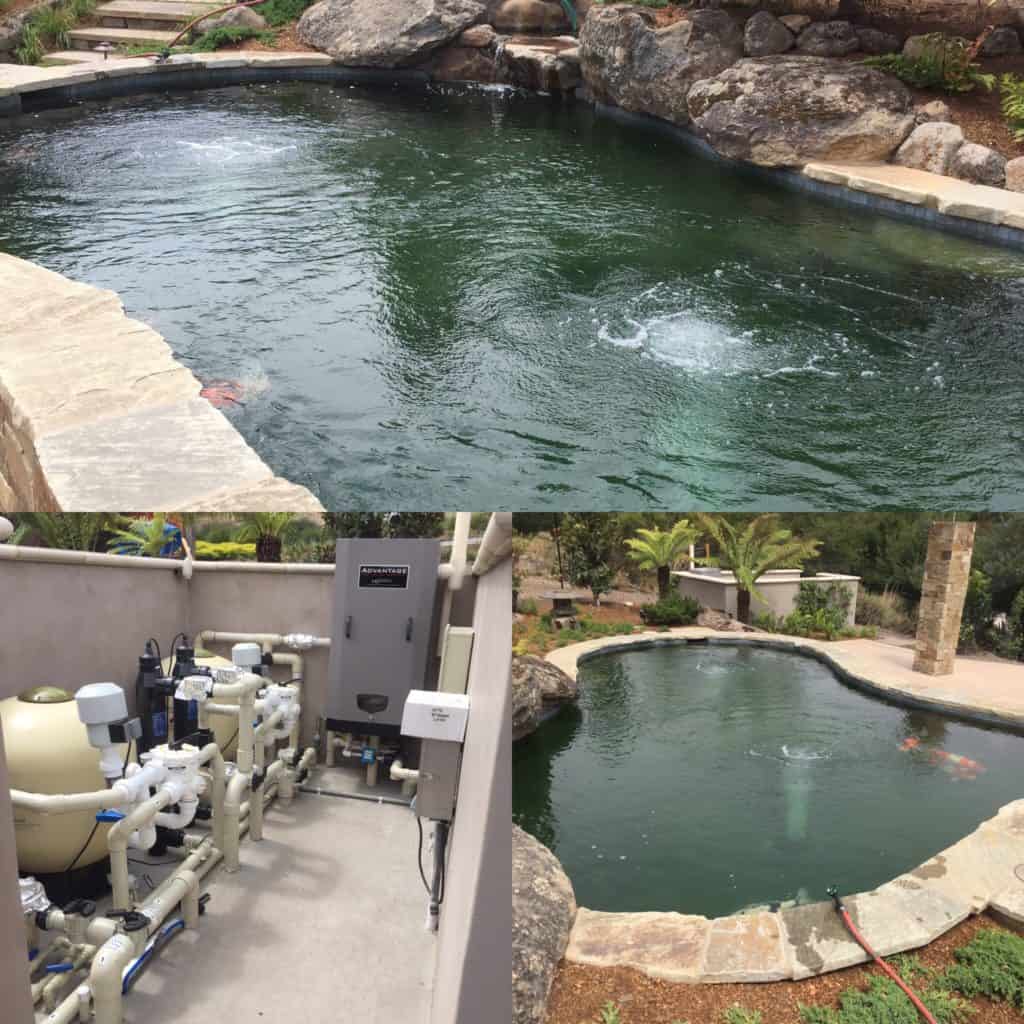In order to provide koi with a proper environment, you will need to incorporate several koi pond filtration elements to ensure good water chemistry. (Looking for information on fish tanks? Check this out.) Before you build a pond, it is critical to properly plan your koi pond filters. If you are getting ready to upgrade, proper planning is also essential to making a seamless transition between systems.
Types of Koi Pond Filters
Mechanical Koi Pond Filters
Mechanical filters remove particulates from your system. These are often overlooked in many koi pond systems which results in more debris ending up in your biological filtration and causing it to clog more quickly. The most basic of the mechanical filters is a settling tank. This tank collects debris by allowing pond water to enter through a vortex, particulates falling out of suspension through simple gravity, and then moving on to your biological filtration. You will need to clean out your settling tank on a regular basis, since it will collect the most waste.
A larger investment includes the addition of a sieve or drum filter. A sieve filter has a fine mesh that filters out all the particulates of your water and is a great choice for water with chronic algae problems (when combined with a UV filter). A drum filter is essentially a rotating sieve filter that CLEANS ITSELF! These filters are the most expensive, but the best koi pond filter available.
Biological Koi Pond Filters
These types of koi pond filters are used to house beneficial bacteria that run your nitrogen cycle. The most common biological filtration on koi ponds are pressurized bead filters. These systems are a big plastic bubble containing lots of small plastic pieces. These small plastic pieces have a very large surface area for cultivating beneficial bacteria. And you don’t need to add any OTC bacteria to your pond! Your fish will grow their own. The most important point about bead filters is that they require regular maintenance, regardless of your fish load. You will need to backwash them on a weekly basis, possibly more if you do not have any mechanical filtration components inline proceeding them. Backwashing reverses the water flow and knocks any debris and dead bacteria out of your filter. If you fail to backwash regularly, your filter media can become compacted and will not work well.
Biological filtration can also be simple matting or straps. These intricate networks provide a home for bacteria to grow and are much easier to DIY. Be sure not to overclean these components! Remember, you want your bacteria to stay in place! NEVER POWERWASH YOUR BIOLOGICAL FILTRATION!! You will get it way to clean and destroy your nitrogen cycle. A simple rinse in waste pond water or shaking is sufficient to keep them clean enough for proper water flow.
Chemical Koi Pond Filters
Although the descriptor sounds odd, chemical filter components for ponds most often focuses on UV filtration. UV filters are responsible for killing algae in your pond. UV FILTERS HAVE ZERO EFFECT ON PARASITES OR BACTERIA ON YOUR FISH. UV filters will zap algae cells, killing them, but if you do not have any mechanical filters, they may continue to circulate around your pond, transforming it from green to grey or brown.

How to Plumb Koi Pond Filters
When you plumb all of your filtration components, it is critical to be sure to put them in the correct order.
Step 1: Mechanical Filtration
Mechanical filtration is critical to be the first line of defense for your filtration system. If you skip this step, all the additional debris will end up in your biological filtration and clog it up.
Step 2: Biological Filtration
After the large particles have been removed from your water from your mechanical filtration, it is in the best shape to contact your biological filter media.
Step 3: Chemical Filtration
Chemical filtration is the final step in clarifying your water before it returns to the pond.
There is no one “right way” to set up a pond, but there are many way to do it wrong. Always consult with a professional if you are a new pond owner.

